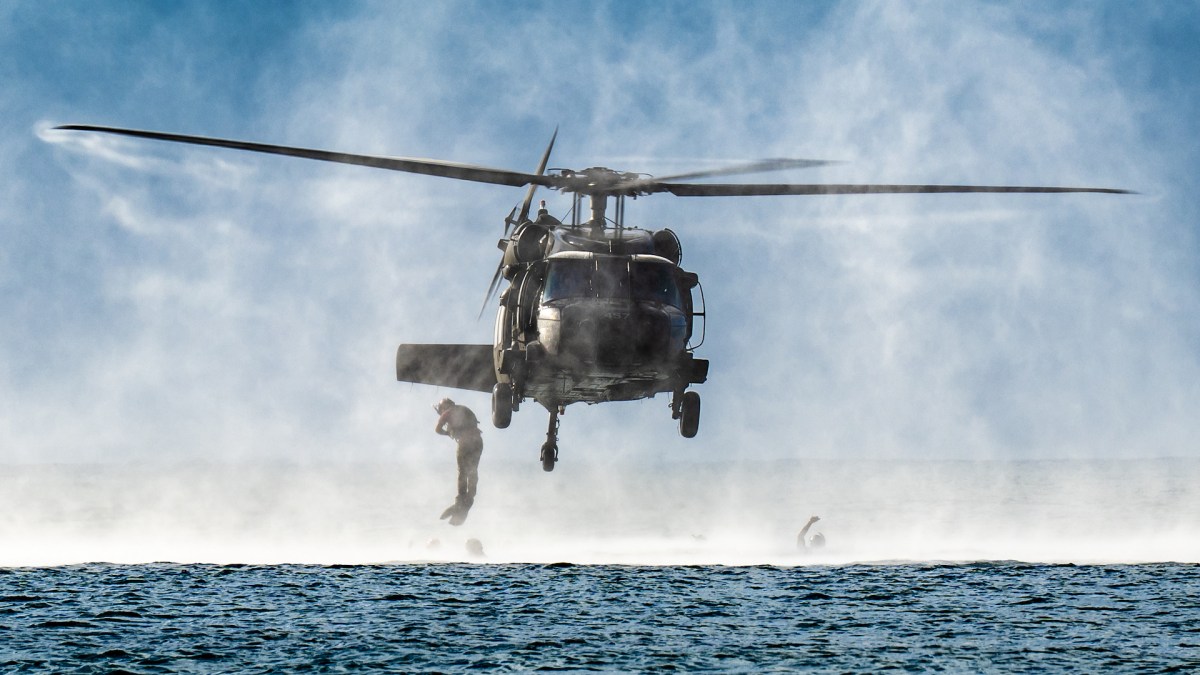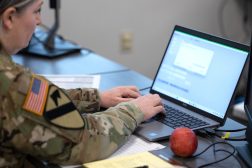AFSOC embraces training opportunities in Caribbean amid rising tensions

NATIONAL HARBOR, Md. — Air Force Special Operations Command leaders are moving to deploy new technologies and diversify exercise locations — including around the Caribbean — as they seek to drill forces in scenarios and environments similar to those where they may be called on to fight in the future.
“To get into places that we have not traditionally had a robust training presence — it’s all an opportunity for me. We are very good at the [U.S. Africa Command and U.S. Central Command] operations. When we get into new theaters and train in new places, it’s all goodness for us,” AFSOC commander Lt. Gen. Michael Conley told reporters on Wednesday.
During a media roundtable at AFA’s Air, Space and Cyber conference, Conley shared new details about the component command’s near-term plans for modernization and how it’s supporting contemporary military operations.
“We have to look into the future, but still be actively engaged in the other things going on in the world. So, I don’t have the luxury to just pick one theater to look at. I need men and women that we send out in harm’s way to be fully trained and ready to go into the fight that’s going on tonight — wherever that is,” he said.
AFSOC’s workforce encompasses approximately 21,000 airmen and civilians. On any given day, the command has approximately 1,000 deployed air commandos worldwide who are involved in operations, training and joint exercises.
Those personnel support Joint Force commanders across four primary functional areas: mobility; strike; intelligence, surveillance and reconnaissance (ISR); and air-to-ground integration.
Conley spotlighted some of the capabilities they’re leaning on and pivoting to prioritize.
“We’re looking at drones. We’re looking at one-way attack [unmanned aerial systems]. All this, this modern technology that is being employed in places by other countries right now — we’re learning from those real-world examples — and we’d be foolish to sit on the sidelines and think that we can’t leverage some of that same technology,” Conley told DefenseScoop at the roundtable.
He said AFSOC is also working to improve its application of AI and machine learning for both back-office operations and on the battlefield.
“As you all know, the Air Force, like the Department of Defense, is really good at building PowerPoint slides. And, we can get out of that business and let AI build just daily business products for us and presentations, so we can use that manpower and talent to focus on really hard things and not building PowerPoint briefings,” Conley noted.
“But I also want to use AI in things like, as we look at our ISR portfolio — and we’re really good at it, we’re really good at the MQ-9 mission — but we still have a very heavy human presence that is analyzing the video feeds,” he told DefenseScoop. “And if we could get to a point where we are using technology that’s out there — where things we’re looking for, AI is helping point us in the right direction — I think there’s still human-on-the-loop to agree in-the-loop, but we’ve got to we’ve got to embrace it and move fast.”
Conley is leading AFSOC at a time when America’s national security priorities are changing under the second Trump administration. One element of that involves a greater emphasis on homeland defense. As part of that aim, President Donald Trump recently approved a new campaign targeting Latin American drug cartels determined to be “narcoterrorists” with direct military action.
In response to reporters’ questions, Conley declined to reveal whether or how AFSOC supported the recent military airstrike targeting a boat of alleged Venezuelan drug smugglers in the Caribbean Sea.
“Vaguely speaking, as I mentioned, AFSOC has capabilities that support strike, mobility, ISR and air-to-ground integration, which can be used anywhere in the world. And I think any combatant commander would want those assets. And so we are prepped to go where the nation needs us supporting this opportunity. We are doing things that you’d expect out of special operations [forces], just in the sense that we need to be ready to go. And that’s kind of all I can say on that,” Conley said.
Notably, shortly before the U.S. strikes against the alleged international drug runners, AFSOC hosted a special ops exercise in the Caribbean.
Conley said the timing of that particular event was coincidental in terms of current events, as it was planned over the last two years. However, he added that he’s keen to see some AFSOC units train more in that area of responsibility — as well as other regions where defense leaders want the military to be most relevant.
“I’ve been in AFSOC since 9/11, 2001 — [that was] my first day wearing a special operations patch. And I’ve spent most of my adult life on deployments in dusty areas, and so I’ve never had those opportunities to train in places that some of our younger crews get to now. So, I look at where the National Defense Strategy has us going, the interim one, where the administration is placing that priority, and I want to train in those places,” Conley told DefenseScoop. “In the Pacific, there’s opportunity. It’s hard, but we get to train in environments that are hot and humid, so you deal with environmental factors that are different from Iraq, or Syria, or Afghanistan. The [U.S. Southern Command AOR also] offers those opportunities.”






